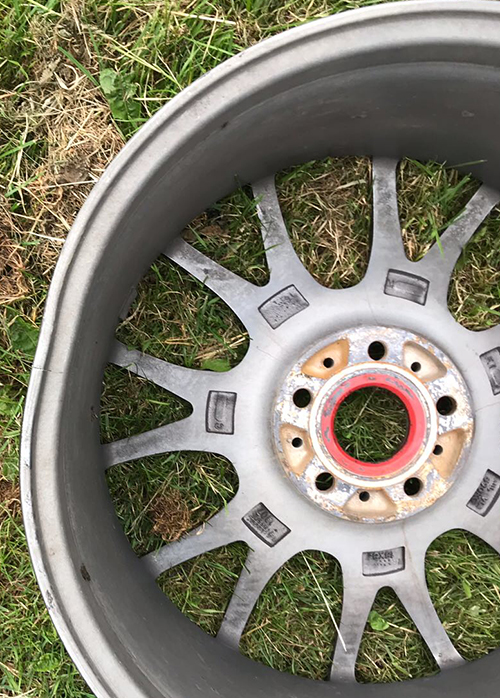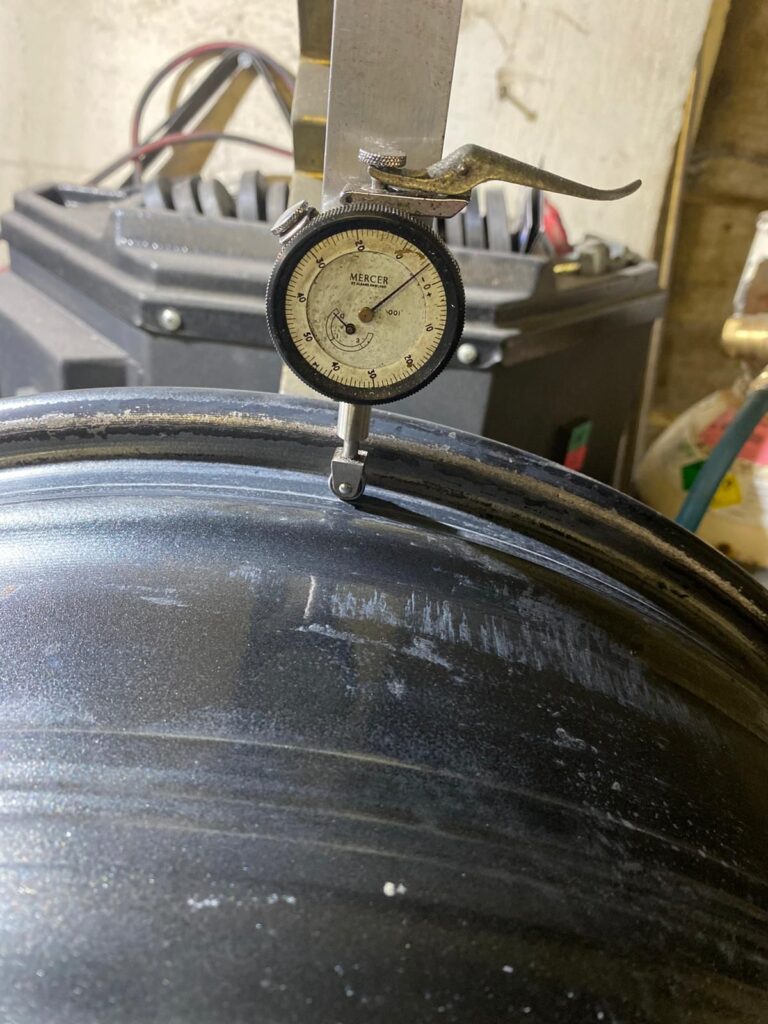Why are UK roads full of potholes?
Few things are more frustrating than hitting a pothole at speed; the sound alone is enough to make you grit your teeth. As the bane of many drivers’ lives, potholes are a blight on UK roads and in addition to making your stomach do somersaults when hitting one, we all know that potholes cancause unwanted damage to our vehicles. The impact of potholes on alloy wheels and your vehicle’s bodywork can be detrimental if not addressed properly and can lead to blowouts, mechanical issues, handling problems and increased fuel consumption. But why exactly are UK roads full of potholes? And what causes these frustrating gouges, cracks, and craters in UK roads? Read on to find out…
Who is responsible for fixing potholes?
It is usually a public body such as Highways England or a local council that is responsible for fixing potholes. However, this does depend on the road in question as the answer will differ, especially around London. If you see a pothole and you’re unsure of who is responsible, you can contact Highways England who will be able to inform you.
What are potholes and what are they caused by?
Potholes are simply holes in the surface of the road and the recent cold weather has been blamed for the state of the roads. Potholes are typically formed in six stages:
Stage 1: Water seeps in through cracks in the road surface and collects underneath.
Stage 2: As time passes, water continues to saturate the road base underneath, softening it.
Stage 3: When the water freezes, it expands and forces up the road surface.
Stage 4: The cycle of freezing and thawing causes more cracks to appear, breaking open the tarmac.
Stage 5: In the summer, stress from the traffic and deteriorated conditions cause more damage.
Stage 6: The weight of traffic breaks the road surface to form a pothole and expands the hole.
Why are potholes so bad?
- Potholes damage cars
One of the main reasons potholes are so bad is that they cause damage to vehicles. Vehicles can suffer from damaged alloys wheels, handling problems, increased fuel consumption and more if they are damaged by potholes. - Potholes make road conditions worse
Water is the main cause of potholes and if potholes aren’t repaired, they will become worse over time. Road conditions could potentially become unsafe if potholes aren’t repaired and can cause potholes to grow in size. - Potholes pose safety risks
As well as damaging vehicles, potholes pose several safety hazards to pedestrians. Potholes are trip hazards, and someone could seriously hurt themselves by tripping and falling as a result of a pothole.
Alloy Damage From Potholes
Hitting a pothole at speed is enough to make us grit our teeth but imagine what impact it has on your alloy wheels. Cracks and bends caused by impact with a pothole can cause alloys to lose air, cause vibrations and shaking from your steering wheel and can excessively wear tyres, ultimately leading to MOT failure. As well as cracking and denting your alloys, hitting a pothole can cause punctures and, if you feel you may have hit a pothole too fast or hard, we recommend finding a safe place to stop to investigate the damage.
How to tell if your alloys have been damaged by potholes?
- Shaking or vibrating when steering
A guaranteed way to tell if your alloys have been damaged is that your steering column will shake or vibrate when driving. This occurs because your tyre is making uneven contact with the surface of the road and shakiness in the steering column could indicate that your front rim is buckled, while vibrations in your seat could suggest that your rear rim is damaged. If you’ve noticed that your
steering or seating has begun to shake, it’s time to get your wheels looked at as this puts you at risk of blow-outs, poor steering and a lack of control.
- You’ve noticed handling problems when driving
If you’ve started noticing that your car isn’t handling the way that it used to and that you’re struggling to control it, this is a warning sign that your alloys have been damaged and are compromising the safety of your vehicle. Damaged alloys can significantly impact the tyre pressure, steering and performance of your car, which could lead to an accident or other dangerous situations to arise.
- There may be visible damage
If you’ve suffered at the hands of a pothole, you’ll likely see some obvious damage to your alloys. On occasion, the damage might not be visible instantly, so it’s worthwhile taking a closer look at the quality of your alloys or getting an expert to take a look for you.
- Your tyre deflates
Your alloy wheel is specially designed to fit flush against your tyre if your alloy is damaged it could pull away from the tyre causing air leaks, and significant drops in tyre pressure and can even cause a serious blowout or puncture if not fixed straight away.
- Increased fuel consumption
With fuel as expensive as it is these days, you’ll want to make sure that you’re making the most out of every single drop. When your alloy wheels are damaged, your engine has to work twice as hard to keep your wheels spinning, meaning that your fuel consumption will be higher and more costly.
- Journeys take longer
If your alloys are damaged, your vehicle will struggle to reach high speeds in a short amount of time meaning that it will lengthen journeys that you are used to completing in a particular time frame.This too will consume more fuel as your vehicle struggles to reach the speeds you desire.
Can you repair alloy damage from potholes?
If you continue driving on damaged alloys, you are putting yourself, your vehicle, and others at risk. If you’ve hit a pothole, it’s vital to check over your alloys, whether you assess the damage yourself or get a professional to take a look. As well as giving your car aesthetic appeal, alloy wheels provide an extra level of structural integrity and can enhance your driving experience, which is why it’s so important to make sure that they are functioning as they should to avoid dangerous situations. If you’re wondering if you can repair alloy damage from potholes, the answer is yes, if done properly.
Welding
As alloy specialists, we at Alloy Logic only use TIG Welding to fix cracked or bent alloys and recommend avoiding MIG Welding on an alloy wheel.
- Metal Inert Gas (MIG) Welding
MIG welding feeds the aluminium rod into the wheel instantly and the welder has little control over the heating of the alloy wheel. Many companies use this as it’s easy but won’t offer any warranty and won’t straighten an alloy if it’s cracked. - Tungsten Inert Gas (TIG) Welding
TIG welding feeds the aluminium rod into the weld pool giving the welder complete control over the weld. This ensures that the weld penetrates correctly for maximum strength. When undertaken by specialists, TIG welding is a much stronger and cleaner weld.
Straightening Wheels
We can straighten wheels using a purpose-built machine. A gauge is used to assess where the wheel is out of shape and the technician uses his knowledge and experience to heat the wheel correctly and apply the right amount of pressure with a hydraulic ram to reshape the wheel. The wheel is left to cool before the tyre can be fitted and pressure tested.
Will damaged alloys fail an MOT test?
In short, yes, damaged alloy wheels can be a contributing reason why your car may fail its MOT. If your alloy wheel has become damaged, cracked, or dislodged it will have an impact on the performance and safety of your vehicle and will therefore be flagged on an MOT test. It’s vital to make sure that your alloys are up to standard so that you, your passengers, and other drivers are safe on the road.
Can I claim for costs incurred by a pothole?
Yes, but it’s not easy, the claims are dealt with by the individual highway agency for the area and they deliberately make it complex otherwise they would be paying out millions in repair costs. The first thing you will read is around 90% of claims are rejected. The reason this is put at the top of the page is a deterrent to those who want to claim. Straight away casting doubt and putting off anyone not prepared for the long process. If you are going to claim for costs incurred by a pothole, here are some tips to make sure your claim goes through:
- Take close-up photos of the pothole showing the width and depth.
- Take photos of the pothole’s position in the road. Take some mid-range pictures of its position in the road from different angles, showing which lane it’s in.
- Take close-up photos of a variety of road signs overlapping one another. Photographs of nearby landmarks such as schools and prominent buildings will help pinpoint the spot.
- Take photos of your car. You’ll need to clearly show the damage done, so take several pictures of anything that’s broken, severed, dented or scratched.
Alloy Logic’s Tips for Keeping You Safe On The Road
With over 20 years of experience, we at Alloy Logic are knowledgeable and skilled in all areas of alloy wheel installation, maintenance, replacement and repairs. Here are some of our top tips for avoiding alloy wheel damage to keep you safe on the road as well as ensuring that your alloy wheels don’t need replacing for a long time to come.
- Take care to avoid hitting kerbs and potholes on the road when driving.
- Keep your alloys clean to avoid a build-up of grit, dust, and any other debris.
- Use proprietary wheel cleaners sparingly.
- Ensure your tyres are properly inflated.
- If damage occurs, make sure you inspect your alloys or have a professional assess them.
- If you notice any of the red flags from above, make sure you get your alloys looked at immediately.
Whether you’re familiar with alloy wheels or you have had them newly installed on your vehicle, you must carry out important maintenance and repairs if you’ve spotted damage or any of the warning signs. If left to worsen, damaged or aged alloys can cause avoidable and costly further damage to your vehicle and will result in them needing to be replaced in their entirety. By properly maintaining
your alloys, you are making sure that your vehicle is safe to be on the road meaning that you are protecting yourself, your vehicle and the general public against potentially dangerous situations.
If you’d like more advice about whether your alloy wheels need to be replaced, then speak to us today for our trusted advice and recommendations.


